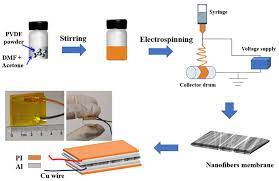A recent study conducted by researchers at Ben-Gurion University has revealed a significant link between anxiety disorders and a brain receptor called TACR3, as well as testosterone. Led by Prof. Shira Knafo, head of the Molecular Cognitive Lab at Ben-Gurion University, the research, published in the journal Molecular Psychiatry, sheds light on the intricate relationship between anxiety and hormones.
Anxiety is a common response to stress, but for individuals dealing with anxiety disorders, the impact on everyday life can be significant. Previous clinical evidence had indicated a strong association between low testosterone levels and anxiety, particularly in men with hypogonadism, a condition characterized by reduced sexual function. However, the exact nature of this relationship had remained unclear until now.
Through her study, Prof. Knafo discovered that male rodents exhibiting high levels of anxiety had significantly lower levels of the TACR3 receptor in their hippocampus, a brain region closely linked to learning and memory processes. TACR3 is part of the tachykinin receptor family and responds to a substance known as neurokinin. This finding prompted the researchers to delve further into the connection between TACR3 deficiency, sex hormones, anxiety, and synaptic plasticity.
To investigate this further, the researchers classified the rodents based on their behavior in an elevated plus maze test that measured anxiety levels. The hippocampi of these rodents were then isolated and subjected to gene expression analysis in order to identify genes with varying expressions between rodents with extremely low anxiety and those with severe anxiety.
One particular gene that stood out was TACR3. Previous research had indicated that mutations in genes associated with TACR3 were responsible for a condition called congenital hypogonadism, which leads to reduced sex hormone production, including testosterone. It was observed that young men with low testosterone often experienced delayed sexual development, accompanied by depression and heightened anxiety. This connection led the researchers to further explore the role of TACR3.
To aid in their research, Prof. Knafo and her team developed two innovative tools. The first tool, known as FORTIS, was used to detect changes in receptors critical for neuronal communication within living neurons. By utilizing FORTIS, the researchers demonstrated that inhibiting TACR3 led to an increase in these receptors on the cell surface, consequently blocking long-term synaptic strengthening, also known as LTP.
The second tool employed was a novel application of cross-correlation to measure neuronal connectivity within a multi-electrode array system. This tool played a crucial role in uncovering the profound impact of TACR3 manipulations on synaptic plasticity.
This study is a significant step forward in understanding the complex relationship between anxiety, testosterone, and the TACR3 receptor. By shedding light on the mechanism linking these factors, it opens up new possibilities for the development of targeted therapies for anxiety disorders. Further research is needed to explore these findings in human subjects and to develop effective treatments based on this knowledge.
*Note:
1. Source: Coherent Market Insights, Public sources, Desk research
2. We have leveraged AI tools to mine information and compile it




